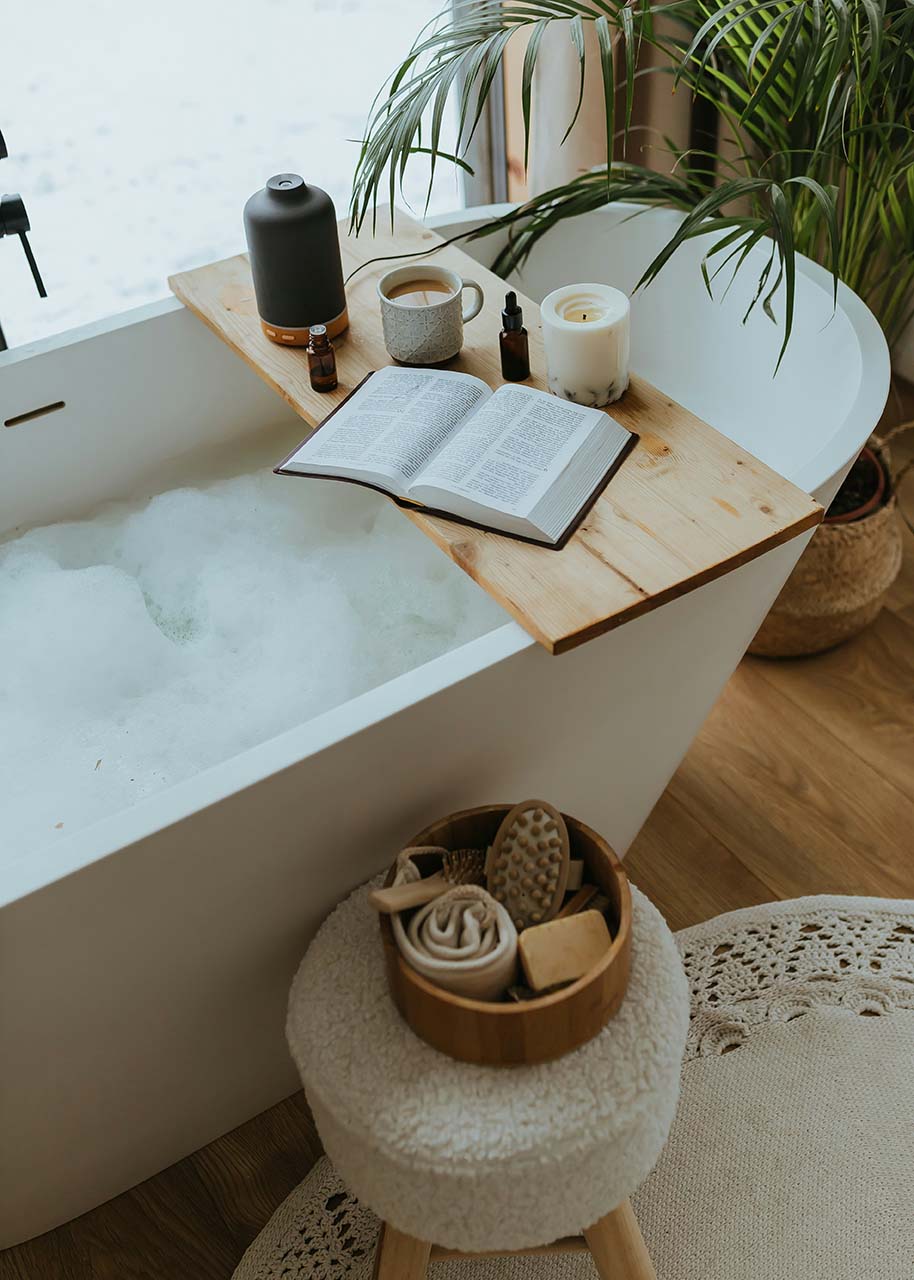(collaborative post)
Between work, travelling to work , chauffeuring our children to endless activities and looking after the home, it can feel like taking time out to care for oneself can feel like a luxury rather than a necessity. However, prioritizing self-care is essential for maintaining both mental and physical health. Despite outdated beliefs, self-care isn’t selfish. It involves recognizing ones needs and taking the necessary steps to meet them, so that you can effectively show up for yourself, your life and others.
What exactly is self-care?
Self-care is the intentional acts and practices that an individual engages in to take care of their physical, mental and emotional well-being. It involves recognizing your needs and making choices which may sometimes be difficult. Self-care is more than just spa days, indulgent pampering sessions and retreats (whilst those things can be nice).
Self-care is also about showing up for yourself in moments when you do not feel like it. When it’s hard but absolutely necessary, in order to maintain your physical, emotional and mental wellbeing. It could look like leaving work on time so that you can work out, taking a lunch break and attending necessary medical appointments. It is also important to note that self-care can look different for everyone and it is about finding what works for you to feel rejuvenated physically and emotionally.
Why is self-care important?
Self-care is important as it is about prioritizing your needs and meeting them. Taking an intentional and conscious approach can enhance many areas of your life including:
- Physical health and preventing illness.
- Improved mental well-being which can reduce stress and promote a better mental state.
- Making it easier to handle life’s challenges.
- Improved relationships as you become more understanding and available for others.
- Increased productivity as self-care can lead to improve focus and efficiency.
- Improved self-awareness leading to a better understanding of your needs and desires
- Burnout prevention.
Why is it so hard to practice self-care?
Despite understanding the importance of self-care it can be quite challenging for several reasons:
1. Time constraint
This one can be a biggie. Adulting can be hard work and quite time consuming with busy schedules and responsibilities.
2. Guilt
It is easy to feel guilty taking time for yourself and prioritizing your own needs over others, leading to neglect of self-care.
3. Societal expectations
Cultural norms often place a high value on productivity, making it seem selfish to take time for yourself. In some cultures resting can be viewed as lazy.
4. Perfectionism
The desire to do everything perfectly can lead to procrastination or avoidance of self-care activities. That could look like needing an hour to exercise when realistically you may have only 15 minutes but avoid the workout as that amount of time does not feel adequate.
5. Support systems
A lack of encouragement or support from friends and family can hinder your ability to prioritize self-care. This one must not be overlooked. Our culture prioritizes individualism to the detriment of the individual. A large part of self-care requires community care too, we need others to share our life. There is a saying that ‘you can go far alone but further together.’
6. Overwhelm
The endless number of self-care options can be overwhelming, making it hard to know where to start. It’s important to focus on a few basics that’s right for you.
7. Habitual pattern
Long-standing habits of neglecting self-care can be hard to break, requiring conscious effort to change.

How to create a self-care plan?
Creating a self-care plan is a personal and thoughtful process that helps you prioritize your well-being. Consider the barriers above that may make it difficult to practice self-care and come up with strategies to minimise or overcome them. That is the first step in creating a self-care plan.
Step 1: Assess your needs
What do you need? Consider the different areas of your life, such as physical health, mental health, emotional well-being, social connections and spiritual needs.
Identify stressors and barriers- What causes you stress or drains you? What would make it difficult to implement self-care practices?
Step 2: Set goals
What do you want to achieve? Is it to reduce stress? Improve physical fitness or improve your nutrition or make more time for relaxation.
Make them SMART: your goals should be specific. Let’s say you want to drink 2 litres of water per day, a litre by 12pm and another litre by 7pm. That is a specific, measurable, achievable, relevant and time bound goal.
Step 3: Choose self-care activities that work for you
Choose activities that can fit around your lifestyle and that appeals to you the most. There are times you may want to choose something that you have not done before to keep things interesting.
Step 4: Create a schedule
Incorporate self-care activities into your daily and weekly schedules. Make them non-negotiable. Use alarms or apps to set reminders for you to take breaks or engage in self-care.
Step 5: Track progress and adjust
Keep a simple journal to track your self-care activities over time and how you are feeling. Be flexible as life changes and your self -care plans may need to change over time.
Step 6: Seek support
Discuss your plan with your family an friends or a professional who can offer encouragement and accountability. Also consider joining a community such as groups or classes that aligns with your goals.
Step 7 : Practice self-compassion
Remember to be kind to yourself. Understand that self-care is a journey and not a one time event. You may have setbacks and that is ok what matters is you getting back on track.

10 must know self -care tips
There are a multitude of self-care tips which can lead to overwhelm. So here are 10 must know self-care tips that you can use to form the foundation of your self-care practices.
1. Connect with others
This one might surprise you. But a key part of self-care is connecting with others as no man is an island. Self-care requires community care. Culturally we place a lot of ownership on the individual. But social connections are vital for emotional wellbeing. We can share our burdens making them easier to handle, problem solve and receive encouragement which can lead to increased resilience. Or just plain have fun and joy through shared experiences.
Schedule time to catch up with friends and family. Joining a group or club is a great way to connect and meet people. Additionally, volunteering to help is a great way to boost your mental wellbeing and to take your mind from anything that may be troubling you.
2. Limit screen time
The current world we live in means we spend a lot of our time on screens particularly scrolling social media. Excessive screen time especially on social media, can impact your mental health. It can lead to increased anxiety and depression, comparison culture, sleep disruption, social isolation and reduced attention span. Set boundaries for your digital consumption by using apps, scheduling time spent on social media and dedicate time to unplug. You can use the time to read, pursue hobbies or just plain relax and spending time with your thoughts.
3. Engage in hobbies
As we get older and the responsibilities become greater hobbies seem to take a backseat and is a distant memory confined to our childhood. But having hobbies can make for a richer, fuller life. Make time for things you love whether that’s painting, gardening, playing an instrument, engaging in hobbies can boost your mood and provide a creative outlet. When was the last time you took time out for a hobby?
4. Set boundaries
Learning to say no and setting boundaries is a form of self-care that protects your energy and mental health. Prioritize your needs and don’t hesitate to step back from commitments that drain your energy. Saying no can be quite difficult especially as it’s a muscle we don’t usually flex. As with anything new in the beginning it can feel quite hard or uncomfortable as you may feel guilty for saying ‘no’ but over time you may find it easier. The key is to commit to prioritizing your needs and what works best for you.
5. Prioritize sleep
Adequate sleep is the foundation of good health. Aim for 7-9 hours per night to help your body recover and your mind to function optimally. Establish a bedtime routine to signal to your body that its time to wind down. Some activities that could be included before bed is having a relaxing bath and using a natural body butter or oils to have a soothing massage. Set a screen deadline of 9pm and instead read a book or practice some nighttime bed yoga to get you in the mood for rest.
6. Move your body
Regular physical activity is crucial for both mental and physical health. Find an exercise routine you enjoy – whether its yoga, dancing, or walking – and aim for at least 30 minutes a day.
7. Nourish your body
Eating a balanced diet rich in fruits, vegetables, whole grains and lean proteins fuels your body and mind. What’s also important is to eat the rainbow: try and include as many different colours in your diet throughout the week. It’s also a great idea to eat mindfully, without distractions such as your phone and TV. Try to focus on the taste, the texture and enjoy a moment nourishing your body with whole living foods.
8. Stay hydrated
Drinking enough water is vital for physical health. Aim for at least 8 glasses a day. Staying hydrated can improve energy levels, cognitive function, and overall mood.
9. Practice mindfulness
Incorporating mindfulness practices such as meditation, deep breathing exercises, gratitude, acceptance or just simply slowing down your day to day activities and be in the present moment can significantly reduce stress and anxiety. Just a few minutes a day can lead to greater emotional resilience.
10. Seek professional help
If you’re feeling overwhelmed, don’t hesitate to seek help from a mental professional. Therapy can provide valuable tools and support for managing stress and emotional challenges.
Conclusion
Self-care is not selfish; it’s a vital practice for maintaining a healthy mind and body. By incorporating these ten self-care tips into your daily routine, you can cultivate a more balanced and fulfilling life. Remember, taking care of yourself enables you to better care for others, so make self-care a priority!
Alicia West is the founder of Wild and Rooted Skincare which embodies the philosophy of slow living and intentional self-care. Rooted in gratitude, her brand encourages you to let go of negativity and judgment, inviting you to savour each moment and prioritize rest. Each product is thoughtfully crafted to reflect this lifestyle, promoting kindness to oneself and nurturing the skin.
Would you like to receive inspiration from The Slow Living Guide regularly?
Sign up for the newsletter here.



